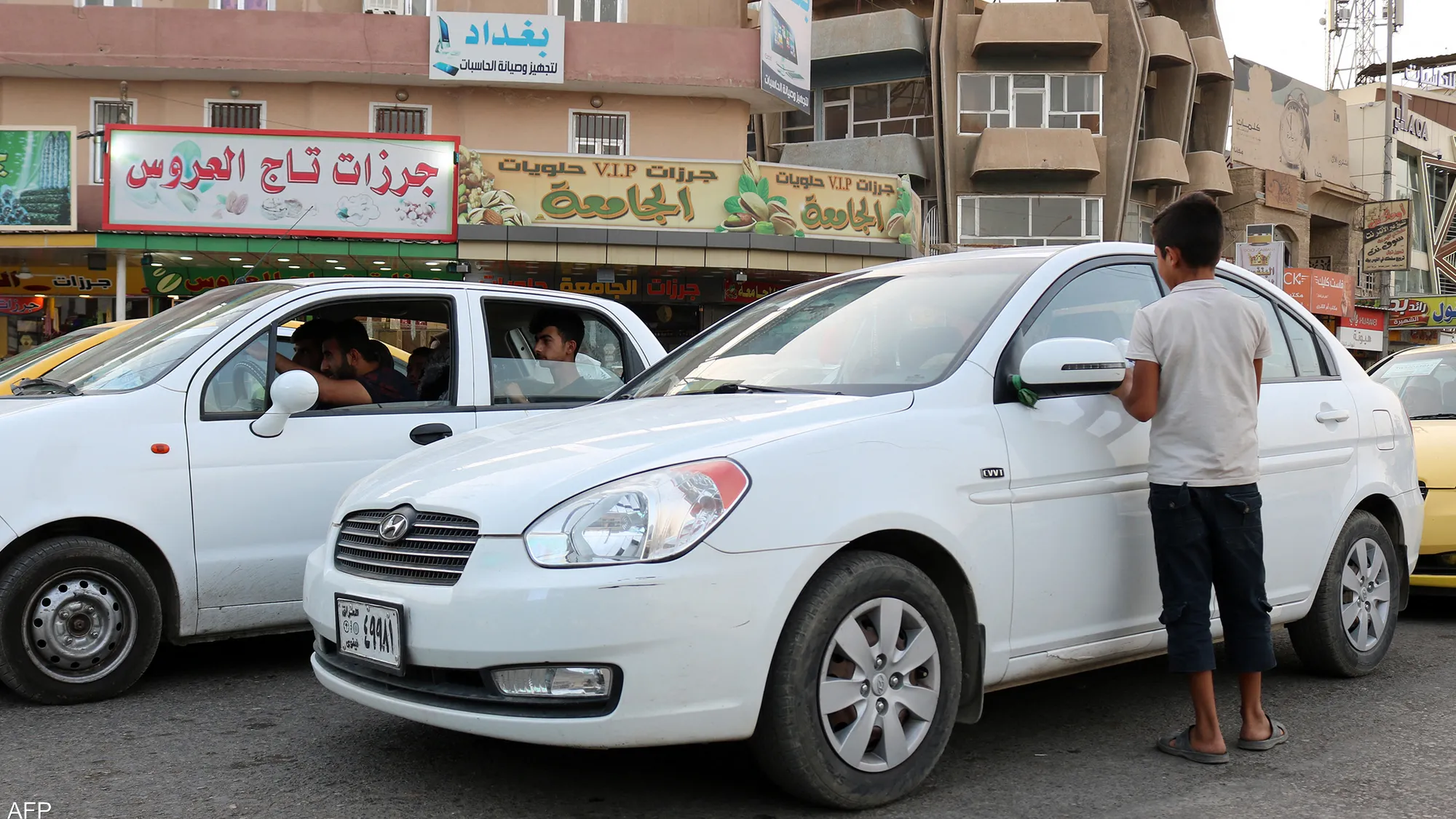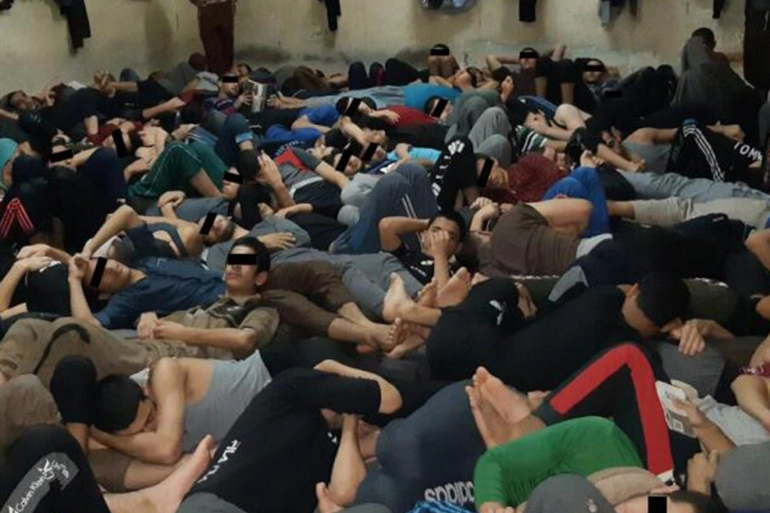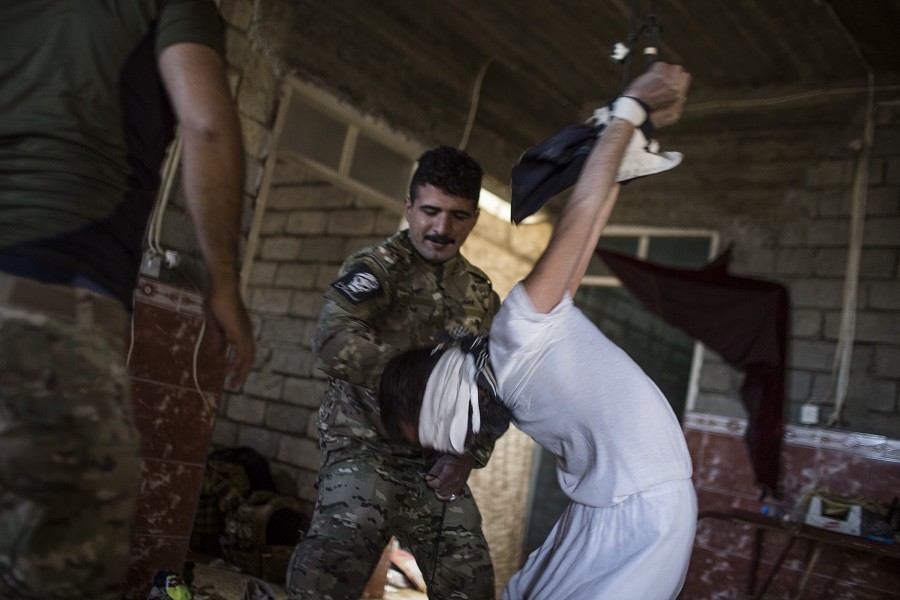The Iraqi Observatory for Human Rights said that the security forces in the province of Basra used violence against demonstrators who went out to
demand their rights, condemning the arrests that took place during the past months and the attacks that caused the deaths of more than twenty demonstrators, in addition to demanding services and the need for them to be provided by the federal government.
The Iraqi Observatory for Human Rights said that the security forces in the province of Basra used violence against demonstrators who went out to demand their rights, condemning the arrests that took place during the past months and the attacks that caused the deaths of more than twenty demonstrators, in addition to demanding services and the need for them to be provided by the federal government.
The Observatory also mentioned that "Even the demonstrations in the first weeks of the government of Adel Abdul-Mahdi witnessed a clear repression, at a time when we urge the new Prime Minister on the importance of ending the attacks on the demonstrators and opening an investigation about these attacks that happened during the government of Haider Abadi and hold accountable the defaulters".
Since the beginning of December 2018, demonstrations have been renewed in Basra, which is suffering from poor services, which led to the civil activists to organize ongoing demonstrations urging residents to demonstrate in condemnation of the situation in the province, as well as the arrests carried out against the leaders of the demonstrations.
The Iraqi Observatory for Human Rights that "a demonstrator was wounded in the demonstration that took place on December 14th, 2018, after the riot police pursued the demonstrators while they were near the building of the province of Basra during a meeting of the provincial council”.
The Observatory also said, "The security forces in the province used excessive violence against demonstrators, some of whom were beating demonstrators with sticks and batons, and sometimes firing live bullets over their heads from close distances”.
"They were attacked by the security forces during and before their attack that they carried out on the vehicles of the provincial council members as they were leaving the council building," said the demonstrators, adding that some security officers beat us with batons on our heads and legs.
"A security man from the riot police dropped one of the protesters on the ground and kept kicking him with his foot on the face and stomach, who did not even leave him until an officer yell at him and shouted at his face to leave him ”said Ali al-Furaiji, a demonstrator in a witness to the Iraqi Observatory for Human Rights.
He also said that "the beaten demonstrator was suffering from pain and wounds and refused to be filmed by anyone for fear that he would be arrested later." The security man beat him hard as if he were a criminal.
The Iraqi Observatory for Human Rights said that "that day, the governor of Basra, Asaad al-Eidani, was trying to beat a demonstrator, justifying that the demonstrator insulted him”.
On the same day, a demonstrator was injured by a vehicle belonging to the security forces near Basra International Hotel in the center of the province. Iraqi security forces justified the incident as unintentional.
The Iraqi Observatory for Human Rights said that "the Iraqi security forces dispersed the demonstration with live bullets, and the demonstrators responded to those forces with stones, which led the security forces to intensify the firing of live bullets, causing injury to at least four demonstrators'.
"The demonstrators cut off the road leading to the provincial headquarters near the naval force intersection, set fire to the tires and burned the police caravan," said Mahdi al-Tamimi, director of the office of the Human Rights Commission in Basra in an interview with the Iraqi Observatory for Human Rights.
He added that "the security forces and riot control units surrounded the site of the demonstration and arrested two demonstrators. The Office of the High Commissioner for Human Rights will follow up the legal and humanitarian conditions of detainees and provide fair detention procedures.
On January 22, 2019, the South Oil Police (a force responsible for the protection of oil installations) detained six demonstrators after trying to stop them from demonstrating when they were waving banners denouncing poor services and demanding jobs.
"I am a petroleum engineer but I did not find a job so he decided to demonstrate," said Ahmed Rabie, one of the detainees. He also said that "a detachment of the oil protection police tried to prevent us and asked us not to demonstrate, but we said that this was our constitutional right, so they quickly detained us for more than twenty-four hours and then referred us to the police station for investigation'.
"The security forces assaulted us verbally and ridiculed our demonstrations and sent us to investigate," Rabie said. "There is a suspicion that we want sabotage or want to harm the country.
"The oil police are not entitled to detain demonstrators unless there is an attack on the oil institutions, but it was just a demonstration led by a group of demonstrators who were demanding their right to provide jobs," the Iraqi Observatory for Human Rights said.
"All the demonstrations witnessed by the governments of Nuri al-Maliki and Haidar al-Abadi and Adel Abdul Mahdi, show that the Iraqi security forces need intensive training on mechanisms to deal with peaceful demonstrations, and real education on the human rights issue".
"the Prime Minister Adel Abdul-Mahdi has to think well on the importance of holding accountable the aggressors against demonstrators during the previous periods to prevent the recurrence of any future attack, and his government should develop a sophisticated program to train security forces elements on mechanisms to deal with peaceful demonstrations".




